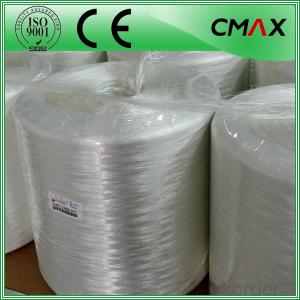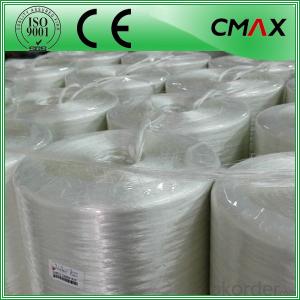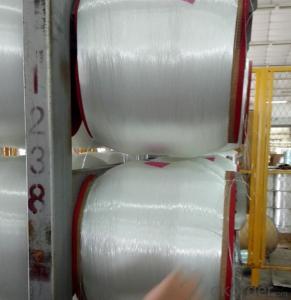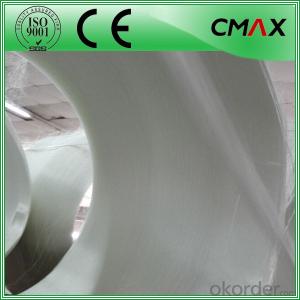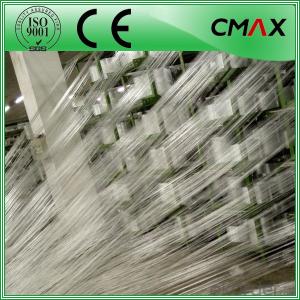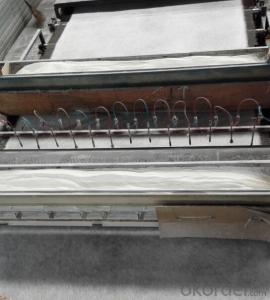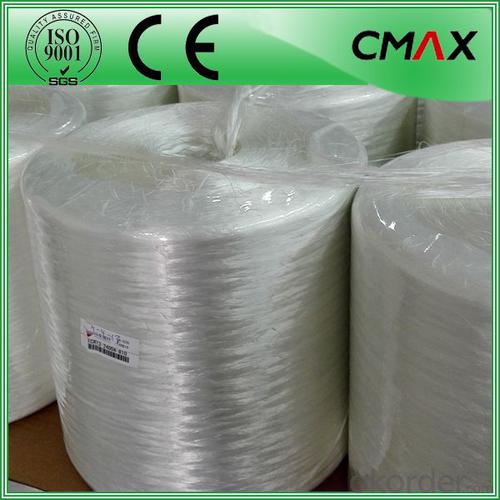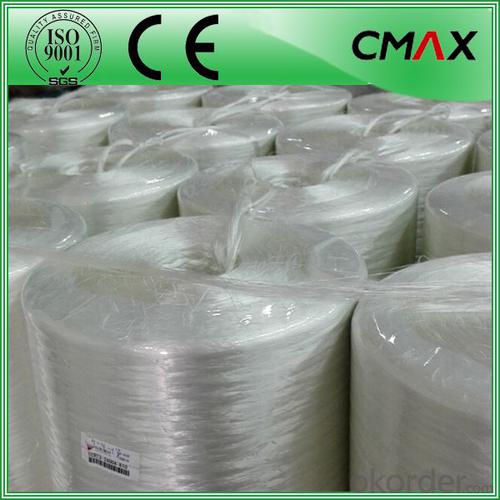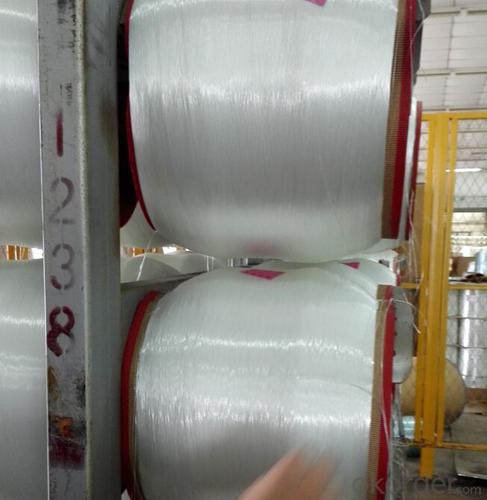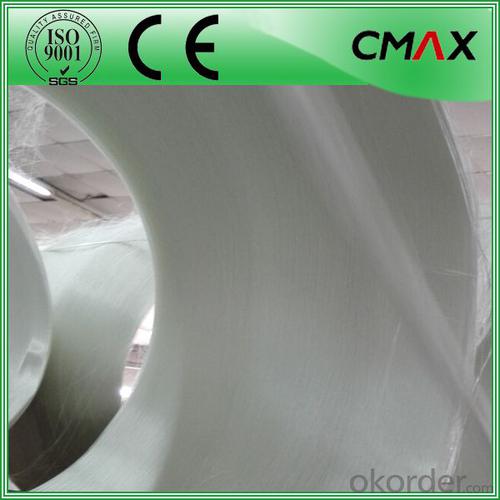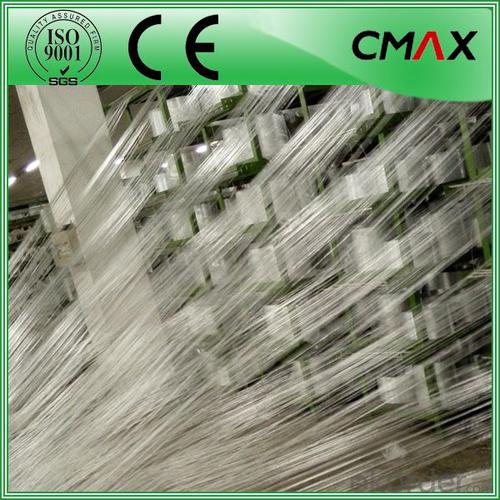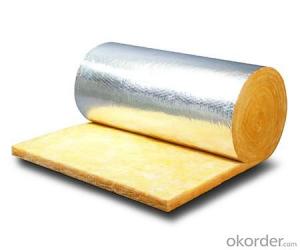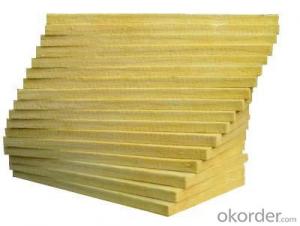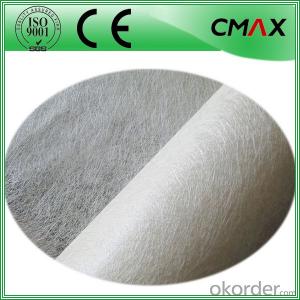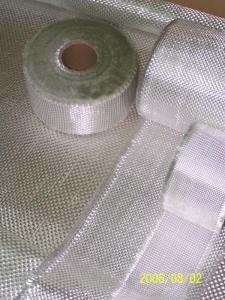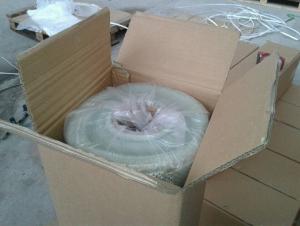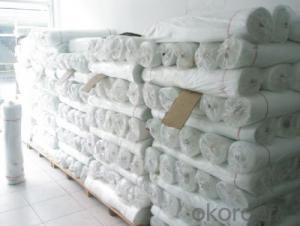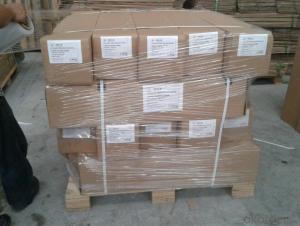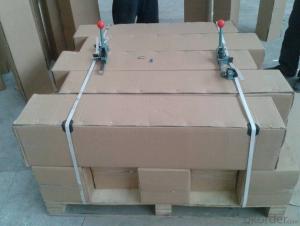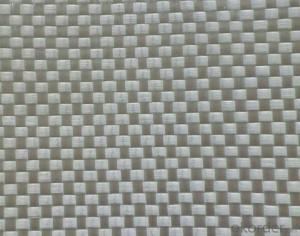Direct Roving Fiberglass Roving Yarn E-Glass Fiberglass Mat Tissue
- Loading Port:
- Shanghai
- Payment Terms:
- TT OR LC
- Min Order Qty:
- 1 m.t
- Supply Capability:
- 100000 m.t/month
OKorder Service Pledge
OKorder Financial Service
You Might Also Like
Direct Roving Fiberglass Roving Yarn E-glass
Introduction:
E-glass sprary-up roving, fiberglass gun roving, fiberglass roving is coated with a silance-based sizing, compatible with unsaturated polyester, vinyl ester and polyurethane resins.
It is a versatile general purpose spray-up roving used to manufacture boats, bathroom sinks ,yacht, sanitary ware, swimming pool and automotive parts and also pipe by centrifugal casting process.
Product Features:
1)Silane based coupling agent which delivers most balanced sizing properties.
2)Special sizing formulation which delivers good compatibility with martix resin.
3)Consistent fiber linear density,good mold ability and dispersion
4)Excellent mechanical properties of composite products
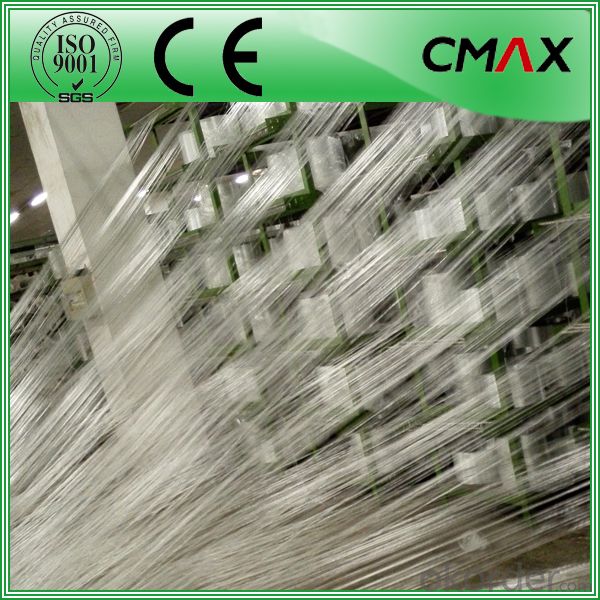
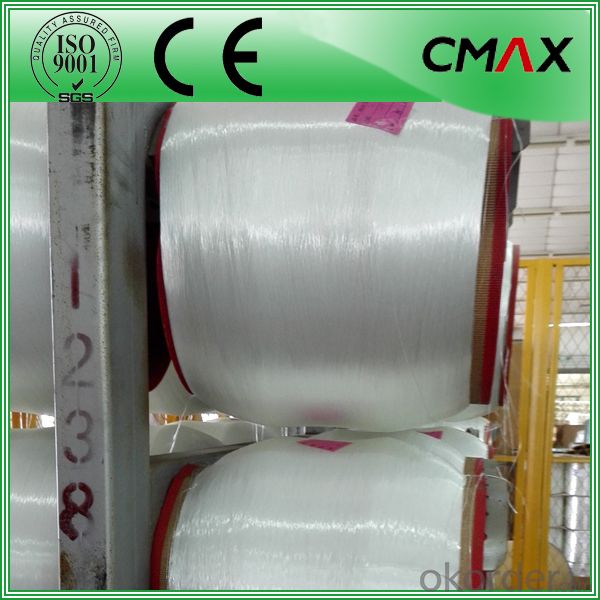
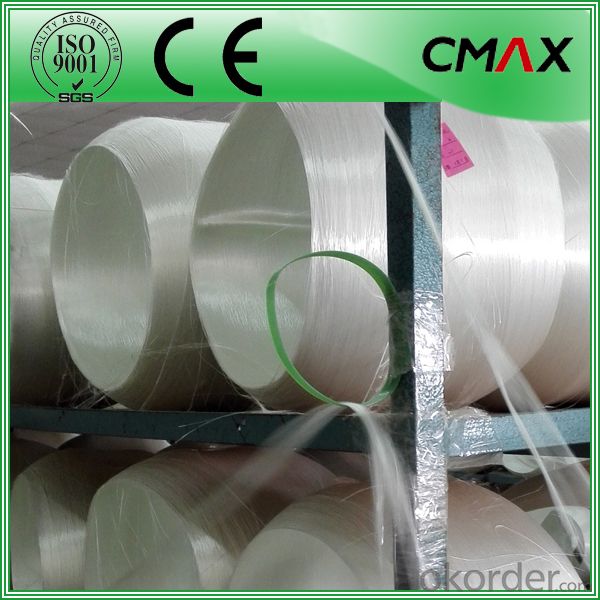
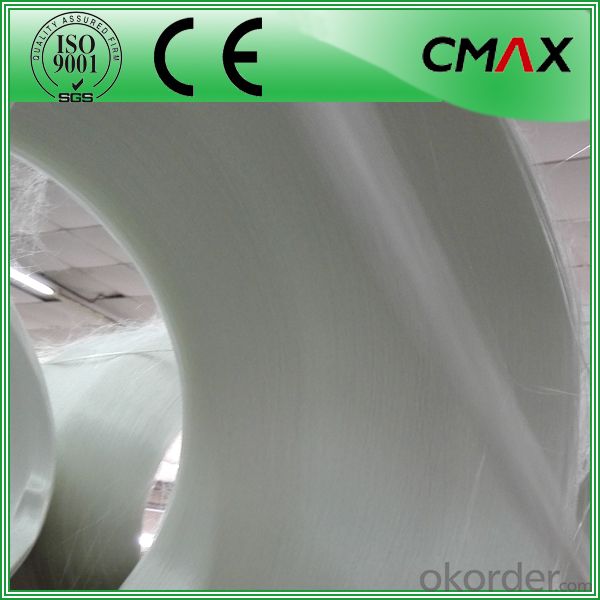
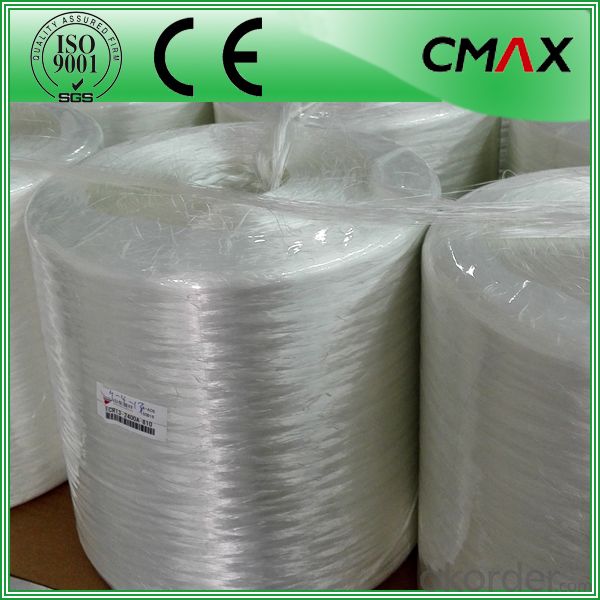
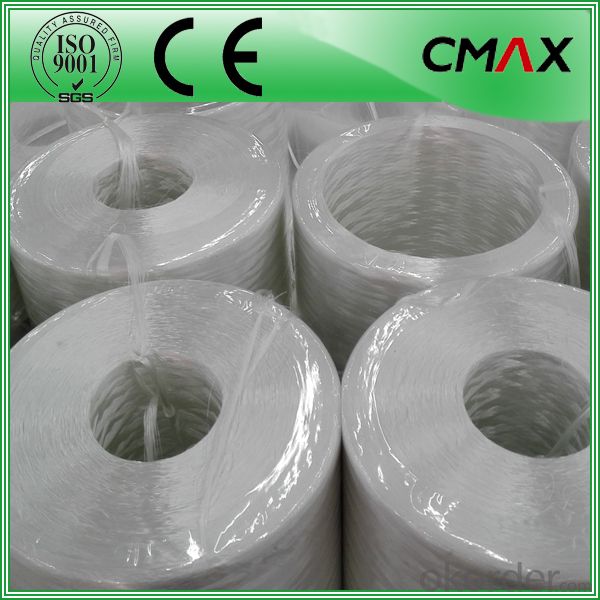
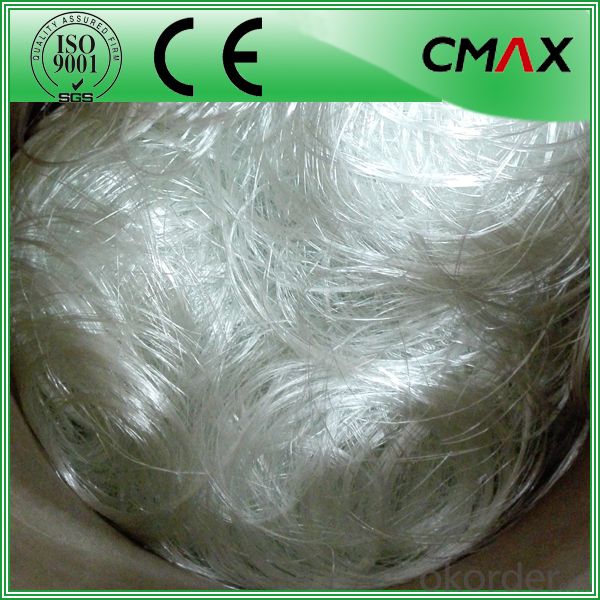
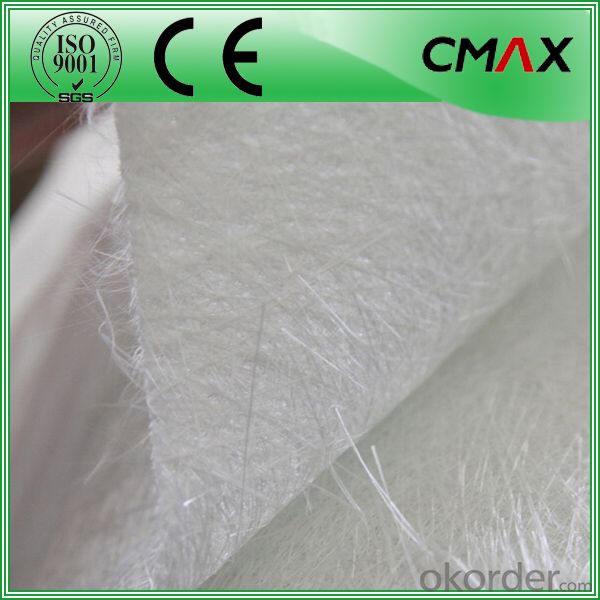
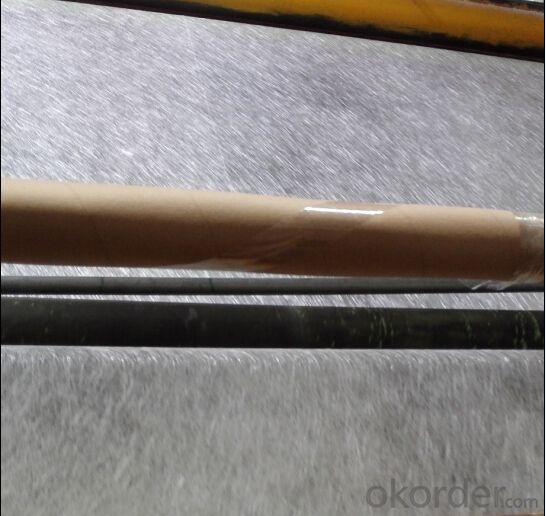
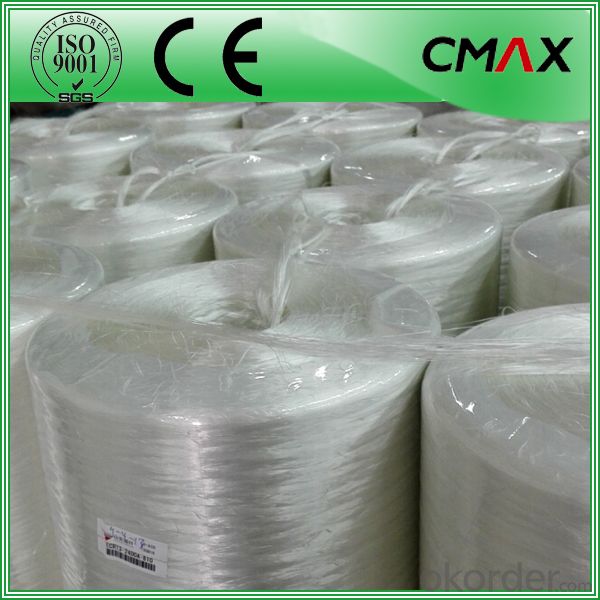
Packaging:
Product is manufactured in form of a roll wrap on a paper tube then after packed in a plastic bag and placed in a cardboard carton. Rolls can be loaded in a container directly or on pallets.
Deposited:
Chopped Strand Mat should be stored in dry, cool, clean and rainproof area. Recommended temperature range of storage is between 15-30 and relative humidity between 40%-70%.
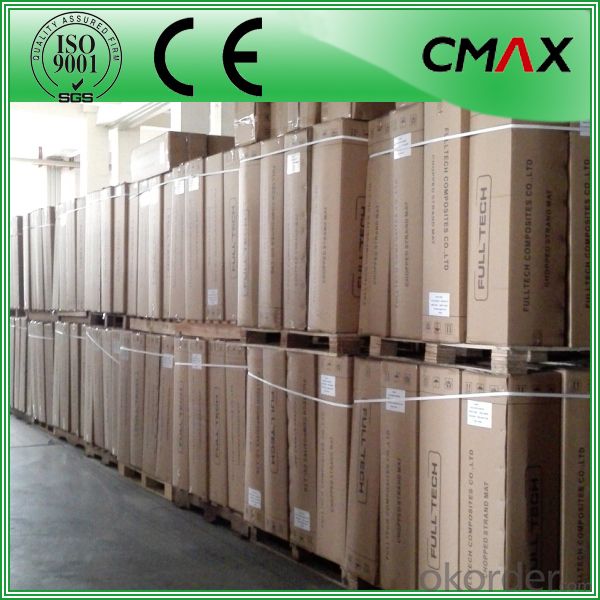
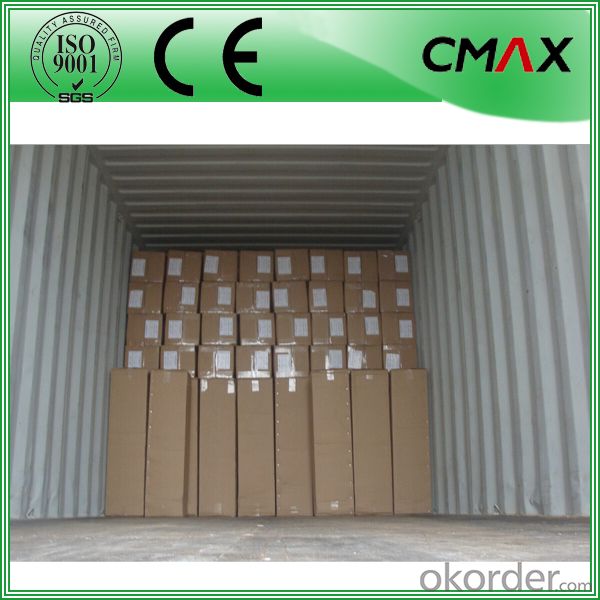
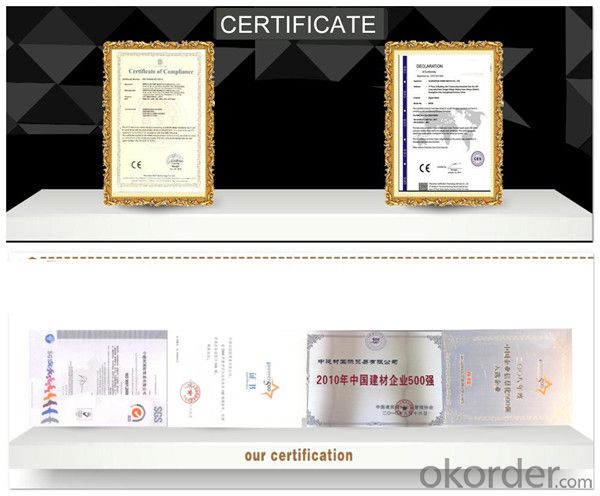
FAQ:
Is sample available ?
Yes, we provide the free samples, but customers themselves need pay the shipping fee
What's your MOQ?
Our MOQ is one 1*20' full container loading
How do you pack the fiberglass
(1) First, the mat is in roll packed in White PE fIlm.
(2) Then the rolls packed in the carton
4.Which knid of payment terms can you accept?
We can accept 30% prepayment, 70% payment before shippment. LC is also accepted
- Q: Can fiberglass mat tissue be used for reinforcing fiberglass roofs?
- Yes, fiberglass mat tissue can be used for reinforcing fiberglass roofs. It is commonly used in the construction industry as a reinforcing material for various applications, including roofs.
- Q: Can fiberglass mat tissue be used for electrical transformers?
- Fiberglass mat tissue can be used for electrical transformers. It is commonly used as insulation material in transformer manufacturing due to its excellent electrical insulation properties. Fiberglass mat tissue is made of fine glass fibers bonded together with a resin, creating a strong and durable material. It is able to withstand high temperatures and has a high dielectric strength, making it suitable for use in electrical transformers. Additionally, fiberglass mat tissue is lightweight and flexible, allowing for easy handling and installation in transformer components. It is also resistant to moisture, chemicals, and fire, further enhancing its suitability for transformer applications. Overall, fiberglass mat tissue is a reliable and efficient choice for insulation in electrical transformers.
- Q: Is fiberglass mat tissue suitable for aerospace applications?
- Yes, fiberglass mat tissue is suitable for aerospace applications. It is lightweight, has high strength-to-weight ratio, excellent thermal resistance, and is fire-resistant. These properties make it ideal for aerospace components such as insulation, structural panels, and aircraft interiors.
- Q: Does fiberglass mat tissue require any special precautions during transportation?
- Yes, fiberglass mat tissue does require special precautions during transportation. Fiberglass mat tissue is a delicate material that can easily get damaged if not handled properly. Therefore, it is important to take certain precautions to ensure its safe transportation. Firstly, the fiberglass mat tissue should be packed in a sturdy and durable packaging material that can protect it from any external impacts or vibrations. This can be achieved by using heavy-duty cardboard boxes or wooden crates that provide adequate cushioning and support. Additionally, it is crucial to label the packaging clearly as "Fragile" or "Handle with Care" to alert the handlers about the delicate nature of the product. This will help prevent any mishandling or rough treatment during transportation. Furthermore, fiberglass mat tissue should be stored and transported in an upright position to minimize the risk of any bending or folding that could potentially damage the material. It is also important to avoid stacking heavy objects on top of the fiberglass mat tissue to prevent any unnecessary pressure or crushing. Lastly, it is advisable to use secure and reliable transportation services that have experience in handling delicate materials like fiberglass mat tissue. This ensures that the product is transported with utmost care and attention, reducing the chances of any damage during transit. By following these special precautions, the risk of damage to the fiberglass mat tissue during transportation can be significantly minimized, ensuring that it reaches its destination in perfect condition.
- Q: Can fiberglass mat tissue be used in wet environments?
- Yes, fiberglass mat tissue can be used in wet environments. Fiberglass mat tissue is designed to be resistant to moisture and can withstand exposure to water, making it suitable for applications in wet environments. It is commonly used in industries such as construction, marine, and automotive, where components or structures are exposed to water, humidity, or moisture. The material's resistance to water ensures that it maintains its structural integrity and does not degrade or lose its performance properties when subjected to wet conditions.
- Q: Can fiberglass mat tissue be used for wind turbine blades?
- Indeed, wind turbine blades can utilize fiberglass mat tissue. This material, known for its lightness and durability, finds widespread use in constructing wind turbine blades. It boasts an impressive strength-to-weight ratio and possesses resistance against corrosion, making it an optimal choice for enduring the harsh environmental circumstances faced by wind turbine blades. Moreover, fiberglass mat tissue can effortlessly be shaped into intricate forms, enabling the production of aerodynamically efficient wind turbine blades. All in all, integrating fiberglass mat tissue into wind turbine blades enhances their performance and longevity.
- Q: Can fiberglass mat tissue be used for making electrical enclosures?
- No, fiberglass mat tissue is not suitable for making electrical enclosures. Electrical enclosures require materials that have good electrical insulation properties to prevent electrical shocks and short circuits. Fiberglass mat tissue is primarily used for reinforcement in composites and does not possess the necessary electrical insulation properties. Materials such as plastics, polymers, or metals with appropriate electrical insulation characteristics should be used for making electrical enclosures.
- Q: Is fiberglass mat tissue compatible with different adhesives?
- Yes, fiberglass mat tissue is compatible with different adhesives.
- Q: What is the chemical resistance of fiberglass mat tissue?
- The excellent chemical resistance of fiberglass mat tissue stems from the inherent properties of the fiberglass material. Typically, the mat tissue consists of woven or bound glass fibers, forming a protective barrier against a diverse array of chemicals. The glass fibers themselves possess a high resistance to corrosion, rendering fiberglass mat tissue suitable for use in environments where chemical exposure is a concern. The chemical resistance of fiberglass mat tissue can vary based on the specific resin or binder used in the manufacturing process. Various types of resins may offer superior resistance to certain chemicals, while others may be more susceptible to degradation. It is crucial to consider the specific chemicals that will come into contact with the fiberglass mat tissue and choose a compatible resin or binder accordingly. In general, fiberglass mat tissue is renowned for its ability to withstand acids, alkalis, solvents, and other commonly found industrial and commercial chemicals. It can endure exposure to a wide range of corrosive substances, making it a versatile and long-lasting material for various applications. Nevertheless, it is important to note that prolonged exposure to highly concentrated or aggressive chemicals may eventually result in some degradation or deterioration of the fiberglass mat tissue. Therefore, it is imperative to consult the manufacturer's specifications and guidelines to ensure proper chemical compatibility and performance in specific environments.
- Q: Can fiberglass mat tissue be used for insulating metal roofs?
- Yes, fiberglass mat tissue can be used for insulating metal roofs. Fiberglass is a popular choice for roof insulation due to its excellent thermal properties and durability. It acts as a barrier to heat transfer, helping to keep the interior of the building cooler in hot weather and warmer in cold weather. Additionally, fiberglass is lightweight and easy to install, making it a practical option for metal roofs. The fiberglass mat tissue is typically applied between the metal roof panels and the building's interior, providing an effective insulation layer.
Send your message to us
Direct Roving Fiberglass Roving Yarn E-Glass Fiberglass Mat Tissue
- Loading Port:
- Shanghai
- Payment Terms:
- TT OR LC
- Min Order Qty:
- 1 m.t
- Supply Capability:
- 100000 m.t/month
OKorder Service Pledge
OKorder Financial Service
Similar products
Hot products
Hot Searches
Related keywords
